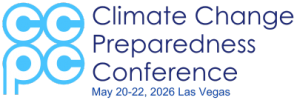
Adrian Alberto Madriz
Co-Executive Director and Co-Founder

Born in New Orleans to Nicaraguan and Venezuelan immigrants, and raised in South Florida, Adrian is a community organizer by trade, with transformative organizing and development experience. His past causes include both of Barack Obama’s Presidential campaigns in Florida, student organizing at the Episcopal Chapel at the University of New Orleans and Housing Organizing in Liberty City through the Miami Workers Center. In addition to organizing, Adrian has an accomplished administrative and development background, having won large federal grants for his organizations, like the $768,000 Affordable Care Act Patient Navigator Grant for the Epilepsy Foundation in 2013.
Through his housing organizing, he has become a local leader on the issues of gentrification, slumlords, climate change, queer advocacy, racial equity and on the technical aspects of affordable housing development for extremely low-income residents in Miami.
Adrian is very active on local housing and resilience issues and has sat on the boards of the Urban Environment League, the Miami Beach Community Development Corporation, the Community Reinvestment Alliance of South Florida, the Steering Committee of the Miami Climate Alliance, the Housing Committee of the South Florida Community Development Coalition and he chairs the Housing Policy Sub-Committee of the Miami-Dade Democratic Executive Committee as well as the Transitional Housing Strategy Committee of the HOMY Youth Homelessness Collective. Adrian also participated in the Overtown Cohort of the Allegany Fellowship for the Common Good, and the Miami cohort of the Maven Leadership Collective for Queer and Trans People of Color working on community development projects. He is also an alumni of the University of Miami Community Scholars in Affordable Housing.
Adrian’s life changed when he learned of the terrible conditions that Miamians face every day in buildings run by slumlords like Abraham Vaknin. He is inspired by the stories of brave tenants fighting for housing justice like Porgie Town, Sharice Taylor, Jemeena Grimes, Gaynisha Williams and other black women who accomplish the daily feat of survival. After being taught about the Community Land Trust concept by veteran community leader Trenise Bryant, he became a vocal advocate of the model. He serves as Executive Director of SMASH at the pleasure of the majority-black and grassroots Board of Directors.
Adrian has a BA in Political Science and in Screen Arts from the University of Michigan, Ann Arbor. He lives with his husband, Armando Carranza Ventura in Overtown, Miami, FL.
SESSIONS
Transforming Climate and Housing Justice Opponents into Allies by Having Fun
Through House of Justice, an organizing platform and a game, people understand the dynamics of the housing crisis and what we need to do to solve it. We build power, promote awareness and create a transformational experience, making participants go from opponents who think housing should be a commodity, to allies defending housing as a human right. A replicable model to build power for your cause.Learn about a comprehensive and practical way to build power and organize movements for justice by applying a fun but impactful method.
Learning Objectives
- Learn new methods to change the perspective of people around pressing issues usually disregarded.
- Learn to develop successful strategies to build power, organize movements for justice and plan effective campaigns and calls to action.
- Learn to build and expand a network of supporters, recruit and teach volunteers, employing innovative and fun methods.
- Learn to choose and focus on the most relevant issues to better engage community members and further the participant's mission.
- Learn about policy change strategies, political communication methods and resources for the protection of rights and the achievement of justice.
Participant Outcomes
- Develop innovative, collaborative and replicable ideas for organizing movements and transforming opponents into allies to their cause.
- Identify new pathways to create organizational, community outreach, engagement, awareness and power building strategies.
- Create fun and practical tools to have people understand the problems and their root causes, engaging in the solutions.
- Compare different methods to drive policy change and attain justice.
